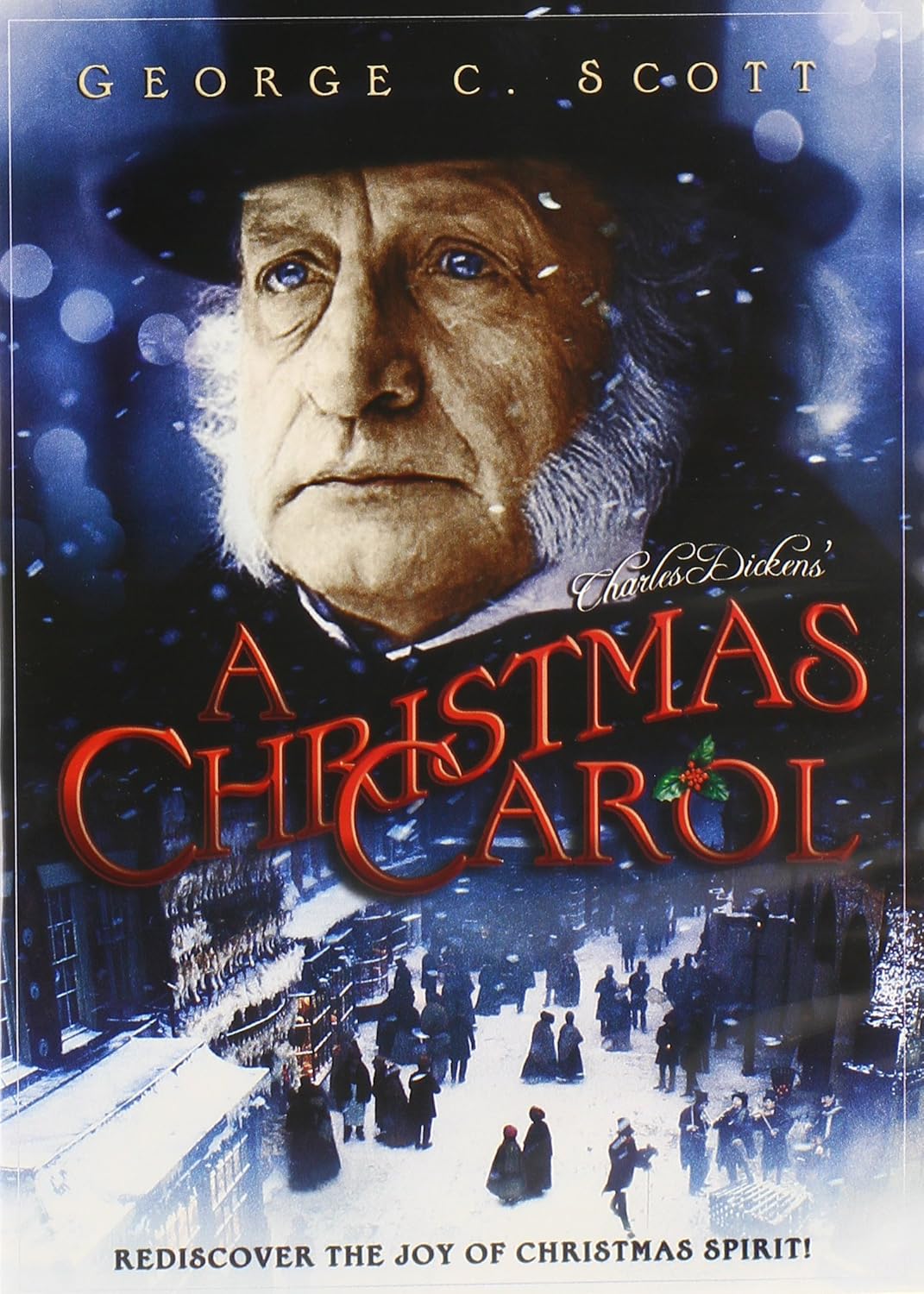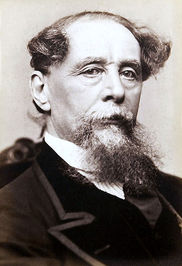
A Christmas Carol
A Christmas Carol is a
novella by English author Charles Dickens. It was first published by
Chapman & Hall on 19 December 1843. Carol tells the story of a
bitter old miser named Ebenezer Scrooge and his transformation resulting
from a supernatural visit by the ghost of his former business partner
Jacob Marley and the Ghosts of Christmases Past, Present and Yet to
Come. The novella met with instant success and critical acclaim. The
book was written and published in early Victorian era Britain, a period
when there was strong nostalgia for old Christmas traditions together
with the introduction of new customs, such as Christmas trees and
greeting cards. Dickens' sources for the tale appear to be many and
varied, but are, principally, the humiliating experiences of his
childhood, his sympathy for the poor, and various Christmas stories and
fairy tales.

Christmas elicits nothing more than "Bah, humbug!" from Ebenezer
Scrooge (Scott), a miser whose sole pursuit of financial success has
left him a bitter and lonely old man
At first, miserable, greedy old Scrooge can't tolerate the revelry of
Christmas, much less comprehend its meaning. But visits from his former
business partner's ghost and three cautionary specters from the past,
present and future force the man to soul-search. Grappling with his own
losses, Scrooge recognizes the repercussions of heartlessness. He opens his heart to the spirit of Christmas and to the joys of friends and
family.
CHARLES DICKENS

Charles John Huffam Dickens
was a writer and social critic who created some of the world's
best-known fictional characters and is regarded as the greatest novelist
of the Victorian era. His works enjoyed unprecedented popularity during
his lifetime, and by the twentieth century critics and scholars had recognized him as a literary genius. His novels and short stories enjoy
lasting popularity.
Dickens left school to work in a factory when
his father was incarcerated in a debtors' prison. Despite his lack of
formal education, he edited a weekly journal for 20 years, wrote 15
novels, five novellas, hundreds of short stories and non-fiction
articles, lectured and performed extensively, was an indefatigable
letter writer, and campaigned vigorously for children's rights,
education, and other social reforms.
Dickens was regarded as the literary colossus of his age. His 1843 novella, A Christmas Carol, remains popular and continues to inspire adaptations in every artistic genre. Oliver Twist and Great Expectations are also frequently adapted, and, like many of his novels, evoke images of early Victorian London. His 1859 novel, A Tale of Two Cities,
set in London and Paris, is his best-known work of historical fiction.
Dickens's creative genius has been praised by fellow writers—from Leo
Tolstoy to George Orwell
and G. K. Chesterton—for its realism, comedy, prose style, unique
characterisations, and social criticism. On the other hand, Oscar Wilde,
Henry James, and Virginia Woolf complained of a lack of psychological
depth, loose writing, and a vein of saccharine sentimentalism. The term
Dickensian is used to describe something that is reminiscent of Dickens
and his writings, such as poor social conditions or comically repulsive
characters.
On 8 June 1870, Dickens suffered another stroke at his home after a full day's work on Edwin Drood.
He never regained consciousness, and the next day he died at Gad's Hill
Place. Contrary to his wish to be buried at Rochester Cathedral "in an
inexpensive, unostentatious, and strictly private manner," he was laid
to rest in the Poets' Corner of Westminster Abbey. A printed epitaph
circulated at the time of the funeral reads: "To the Memory of Charles
Dickens (England's most popular author) who died at his residence,
Higham, near Rochester, Kent, 9 June 1870, aged 58 years. He was a
sympathiser with the poor, the suffering, and the oppressed; and by his
death, one of England's greatest writers is lost to the world." His last
words were: "On the ground", in response to his sister-in-law
Georgina's request that he lie down.https://charles-dickens.org/



No comments:
Post a Comment